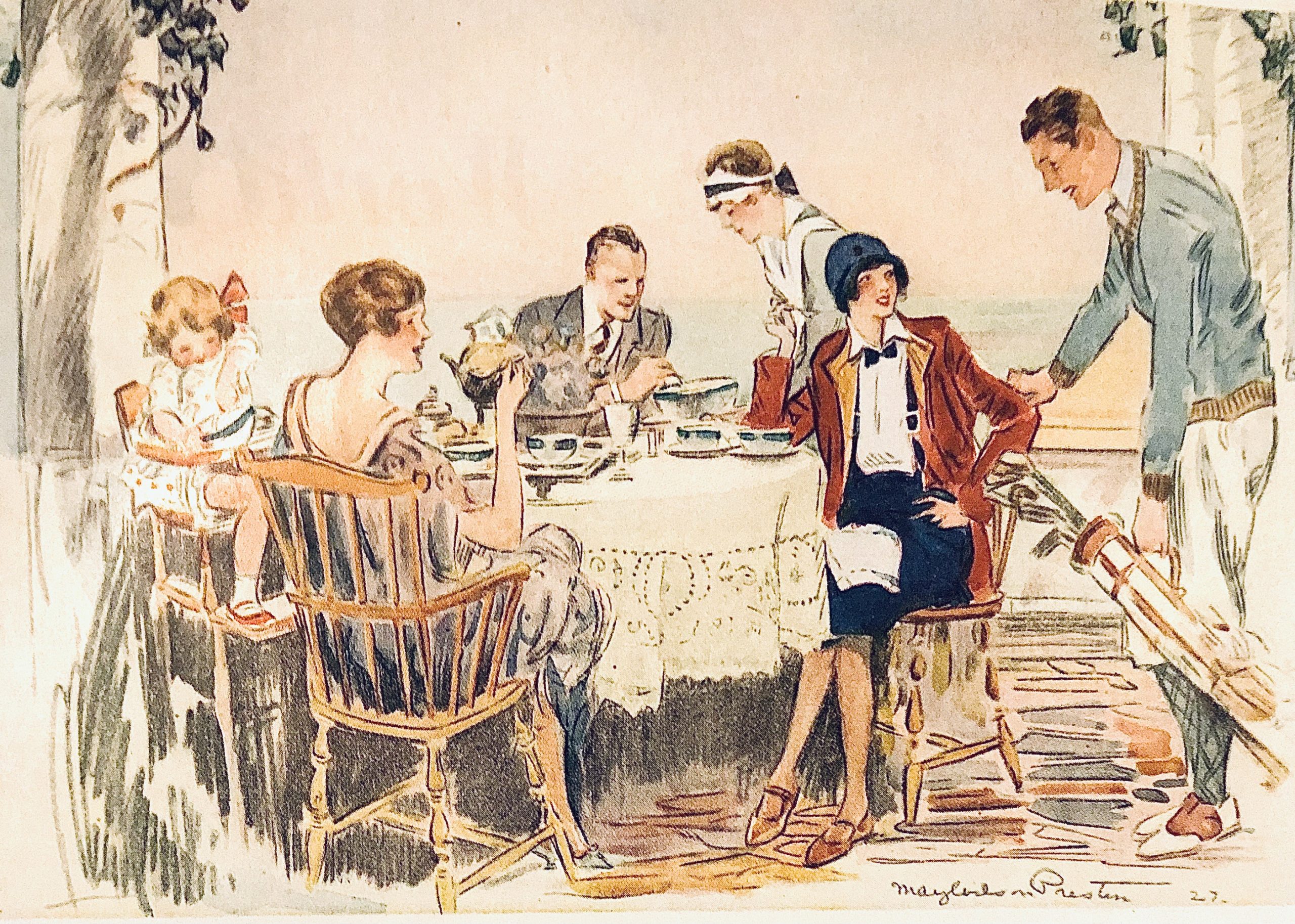“He attended to that and came down with an invitation for me to go up—yes, certainly; and, while we walked along over to the bank to get money, and collect my cigars and tobacco, and to the cigar shop to trade back the lottery tickets and get my umbrella, and to Mr. Natural’s to pay that cab and send it away, and to the country jail to get my rubbers and leave p.p.c. cards for the Mayor and Supreme Court, he described the weather to me that was prevailing on the upper levels there with the Expedition, and I saw that I was doing very well where I was.”
Playing Courier, a short story by Mark Twain
“The use of P.P.C. cards comes in, however, between acquaintances of long or short standing who are not so au fait with each other’s movements. After a temporary residence in the country, for instance, before the return to town is made, in the early days of October it is courteous to leave P.P.C. cards upon all from whom hospitality has been received. When, however farewell visits have been exchanged between neighbours who have grown rapidly intimate, P.P.C. cards are at a discount, and have nothing to convey.”
Social Observances by “Au Fait” (1896)
So what are P.P.C. Cards? P.P.C. is short for pour prendre conge, or to take vacation. But the custom encompasses any leaving of town. You would go to a home and leave your card with P.P.C. written on it. That let your neighbors know that you were going away.
Really it is just a calling card with P.P.C. written on it, but in the days before Facebook to let everyone know where you were, this was the way you did it. As you can see in the quote by Mark Twain, to have printed cards and people to inform was seen as a mark of standing. But by 1876, Au Fait begins the essay on P.P.C. Cards by asking,
“Is the custom of leaving P.P.C. cards dying out? Is it an old-fashioned thing to do? And if not, why are they so seldom left?”
So, this was a practice that was already on the wane. Indeed, Au Fait ends by saying the only time they need be left is when you are leaving and will not be seen again and the card becomes something of a memento. That said all the way in the 1920’s, Etiquette for Gentleman stated:
“A gentleman on leaving home for any but a short period sends a card to the ladies and gentlemen of any house where he has been received as a caller, and these are marked “P.P.C.” in the corner, too denote that he begs leave to say good-bye in conventional fashion. They are sent by post.”
So, no longer did one bring your P.P.C. cards around in person, but you mailed them off.
We never see P.P.C. cards anymore and this old habit is one that I think, is fine to die out, we have social media to tell our friends when and where we’re going. Just remember to put that blast on limited views for only your close friends and family or you’ll also be letting the thieves know when to rob your house. I guess P.P.C. cards did have some advantages!



